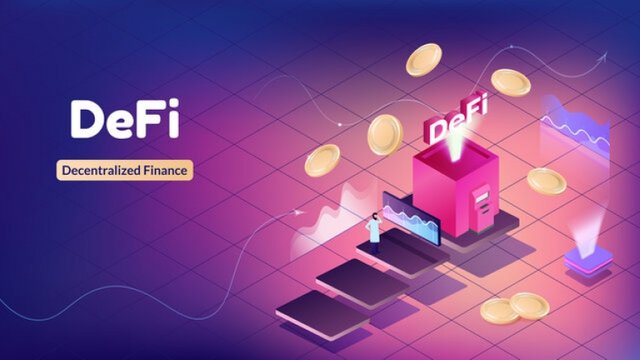
In the world of finance and technology, few innovations have captured the imagination and potential for transformation quite like Decentralized Finance, or DeFi. DeFi has surged in popularity and adoption over the past few years, redefining the way we think about traditional financial systems. At its core, DeFi seeks to provide inclusive and accessible financial services to anyone with an internet connection, irrespective of their geographical location or financial status. Central to the DeFi movement are DeFi exchange platforms, and behind their development are companies that are revolutionizing the financial landscape. In this blog, we'll explore the significance of these companies in building the foundations of financial inclusion.
Understanding DeFi Exchange Platforms
DeFi exchange platforms, also known as decentralized exchanges (DEXs), serve as the backbone of the DeFi ecosystem. They enable users to trade cryptocurrencies and other digital assets directly with one another without the need for intermediaries, such as traditional banks or financial institutions. These platforms leverage blockchain technology and smart contracts to facilitate peer-to-peer trading, thereby reducing costs, improving security, and increasing accessibility.
The Key Role of Development Companies
DeFi exchange platform development companies are instrumental in bringing DeFi exchange platforms to life. Their expertise in blockchain technology, smart contract development, and user experience design is pivotal in creating platforms that are user-friendly and secure. These companies are responsible for building the infrastructure, architecture, and features that empower financial inclusion through DeFi. Here's how they do it:
Smart Contract Development: Smart contracts are self-executing agreements that facilitate automated transactions without the need for intermediaries. DeFi exchange platforms rely on smart contracts to enable secure and trustless trading. Development companies are responsible for creating and auditing these smart contracts to ensure that they function flawlessly.
User-Friendly Interfaces: A critical aspect of financial inclusion is making DeFi platforms accessible to everyone, regardless of their technical knowledge. Development companies design user interfaces that are intuitive and easy to use, ensuring that both experienced and novice users can navigate the platform comfortably.
Security: Security is paramount in the world of DeFi, as the absence of intermediaries means that users are responsible for safeguarding their assets. DeFi exchange platform development companies implement robust security measures to protect users from hacks and vulnerabilities.
Liquidity: Liquidity is crucial for the success of any exchange. Development companies often launch liquidity mining programs and incentivize users to provide liquidity to their platforms, ensuring a vibrant and active marketplace.
Interoperability: To maximize financial inclusion, DeFi exchange platforms need to be compatible with various blockchains and assets. Development companies work on interoperability solutions, enabling users to trade a wide range of digital assets.
Compliance and Regulation: While DeFi operates in a decentralized manner, developers must also ensure compliance with relevant regulations in different jurisdictions. Development companies engage with regulators to navigate this complex landscape.
Community Building: Building a strong and engaged community is vital for the success of DeFi exchange platforms. Development companies often organize events, webinars, and educational initiatives to foster a sense of belonging among users.
Benefits of DeFi Exchange Platforms for Financial Inclusion
DeFi exchange platforms, with the support of development companies, offer several benefits for financial inclusion:
Global Accessibility: Anyone with an internet connection can access DeFi exchange platforms, allowing the unbanked and underbanked to participate in the global financial system.
Reduced Costs: Traditional financial services often come with high fees. DeFi platforms can drastically reduce transaction costs, making financial services more affordable for all.
Financial Empowerment: DeFi allows individuals to have full control over their assets and investments, empowering them to make financial decisions without relying on intermediaries.
Inclusive Investment Opportunities: DeFi enables access to a wide range of investment opportunities, including cryptocurrencies, tokens, and yield farming, opening up diverse income streams.
Resilience and Security: The decentralized nature of DeFi platforms makes them resistant to censorship and fraud, enhancing the security and resilience of financial services.
Conclusion
DeFi exchange platform development companies play a pivotal role in advancing financial inclusion by creating the technological foundations for a new, decentralized financial system. These companies are not just building platforms; they are constructing bridges to a more inclusive and accessible financial world. As DeFi continues to evolve and expand, the impact on global financial inclusion is likely to grow, providing new opportunities for individuals around the world to achieve financial empowerment and security.